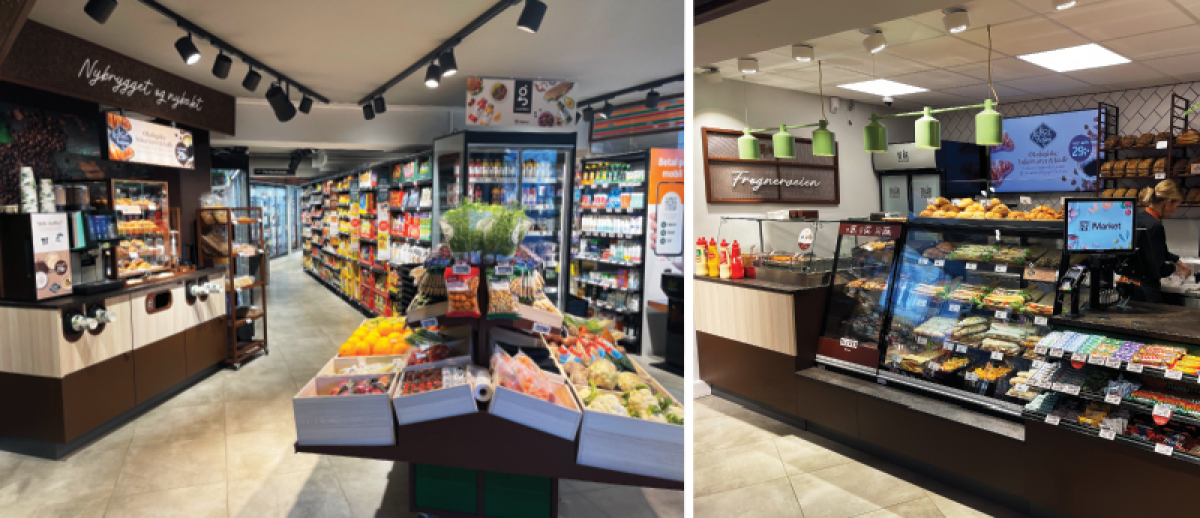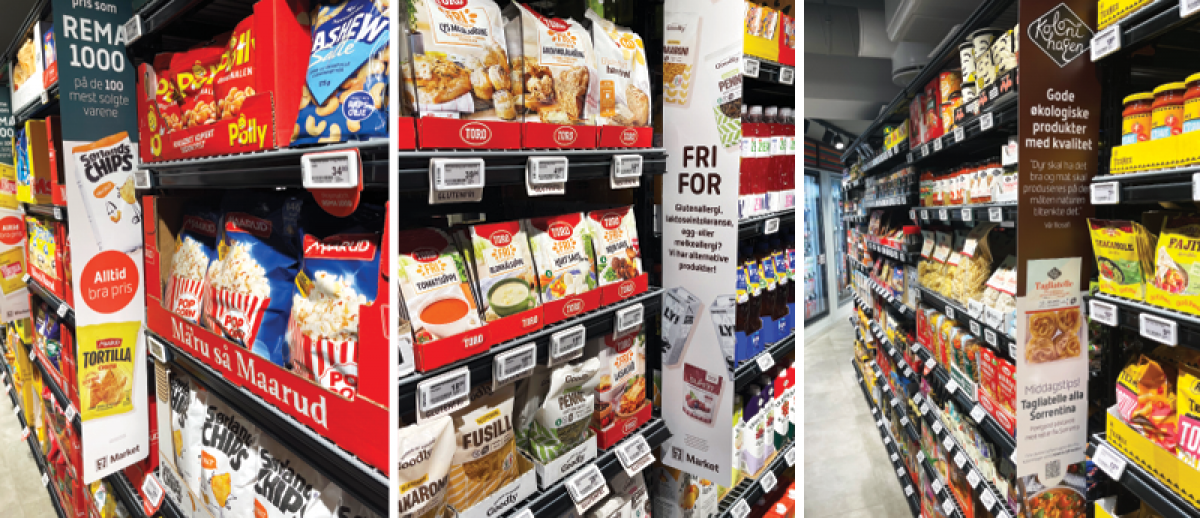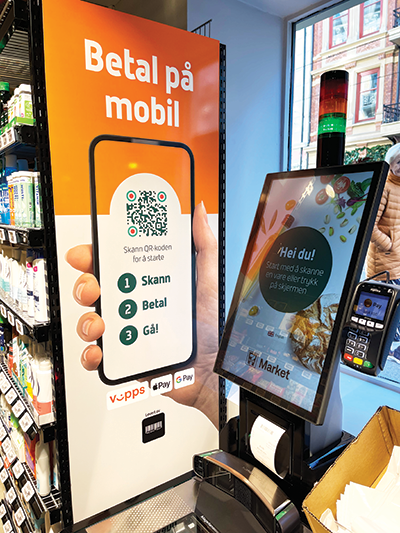Traditionally, convenience stores in Norway have focused on typical convenience items like food and drinks to go and have only had a small range of grocery items typically sold at a significantly higher price than in grocery stores. For many years, made in-store and fresh food, along with hot drinks, have been the main growth sector within the Scandinavian convenience channel. There also is a growing demand for healthier and trendier food.
In Norway, stores bigger than 100 square meters (about 1,000 square feet) must be closed on Sundays. During the rest of the week, grocery stores stay open from 7 a.m. to 10 or 11 p.m. During the past 5-10 years, grocery chains have opened smaller scale Sunday stores under 100 square meters. These tend to be just small grocery stores without traditional convenience items.
With 7-Eleven Market, we explore and challenge the convenience concept of the future in our own living lab.
About 50% of the convenience market in the country is gas station based, while the other half is dominated by stores located in public transport hubs. Lately, the convenience sector has faced some new challenges:
- Firstly, the COVID-19 pandemic has had severe consequences for the public transport sector and therefore also for the stores whose footfall mainly came from public transport. For the gas station segment, the impact has been slightly positive.
-
Secondly, electric vehicles now have a 60%-plus market share of new car sales in Norway. Electric cars now account for 15% of all cars on the road. Even though it is difficult to compare figures from year to year because of the pandemic, the growth of EVs will have a severe long-term impact on fuel sales and general traffic at gas stations. While many gas station players invest heavily in EV charging facilities, only 10% of all car charging takes place outside the owners’ homes or workplaces.
The Reitan Group, which operates 7-Eleven in Norway, Sweden and Denmark, is a major player in the grocery sector in Norway and Denmark through its “soft discount” chain REMA 1000. In Norway, this chain has nearly a 25% share of the grocery market but has not been very active with regard to downsized Sunday stores.
 Cover image: street view of the 7-Eleven Market by Reitan. Left, customers can find the grocery section just inside the entrance. Above, the counter area features bakery, food to go and confectionary items.
Cover image: street view of the 7-Eleven Market by Reitan. Left, customers can find the grocery section just inside the entrance. Above, the counter area features bakery, food to go and confectionary items.
A UNIQUE MARKET
In October 2021, Reitan opened its new concept 7-Eleven Market in Oslo, which is a hybrid format combining grocery and convenience for urban customers.
“I am proud to launch a brand new concept in the Reitan Retail family—low cost for people on the go,” Reitan Retail CEO Ole Robert Reitan said in a news release announcing the store's opening.
“7-Eleven Market is a great example of how we reinforce and renew our concepts to meet more customer needs and create even better customer experiences.”
In this new store, 7-Eleven Market has managed to:
- Combine downsized REMA 1000 grocery stores with a limited food and drinks on-the-go offer
- Sell grocery items at the same low price as REMA 1000
- Offer a wide selection of groceries, along with a focus on trendy, healthy and specialty products targeted at the customer base in the store’s upmarket neighborhood
- Include some interesting category signage underlining the combination of low price and specialty items
In addition to a traditional convenience-store counter service, the market also offers a self-checkout solution where customers can pay by mobile phone. Even though many convenience retailers have tested self-checkout in their stores, customers still tend to prefer the traditional counter service, as opposed to the grocery sector, where self-checkout is frequently used.
 Signs indicate that the prices are the same as REMA 1000 stores, and there are sections for "free from" products and sustainable products.
Signs indicate that the prices are the same as REMA 1000 stores, and there are sections for "free from" products and sustainable products.
According to Kenneth Olsen, the CEO of Reitan Convenience in Norway, the store is a living lab. The key challenge seems to be to communicate the pricing strategy properly to the customer base. Olsen, however, sees this new format as an interesting way to develop and revitalize the existing network, as well as a base for the further development of new neighborhood locations.
 Customers can skip the line and do self-checkout with mobile payment.
Customers can skip the line and do self-checkout with mobile payment.
Mariette Kristenson, CEO of Reitan Convenience, said, “With 7-Eleven Market, we explore and challenge the convenience concept of the future in our own living lab. We will make our customers’ everyday lives a little easier and make it easy to make good choices in a busy everyday life, both in terms of price, sustainability and healthy options.”
Tonje and Alvaro Hernandez Rivas are the merchants running the new store in Frognerveien. “We have built a nice and spacious shop, where you will find everything you need 24/7. Customers will smell the amazing smell of freshly baked baked goods, fresh fruit and coffee as soon as they get inside the door,” the couple said in a news release shared by Reitan Convenience.